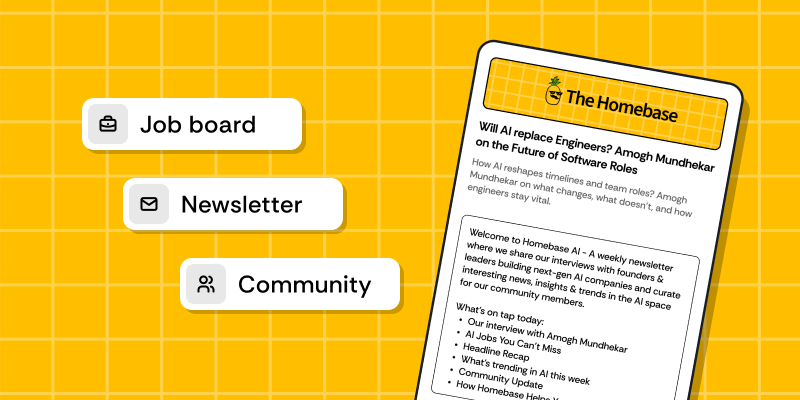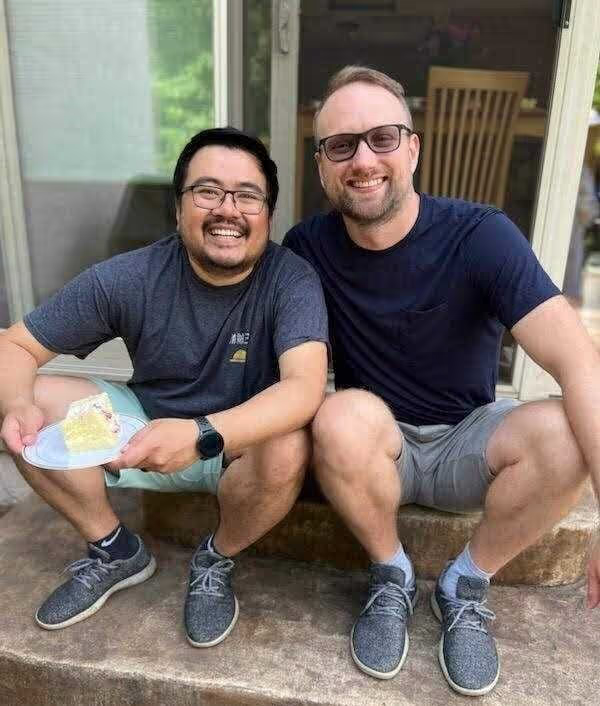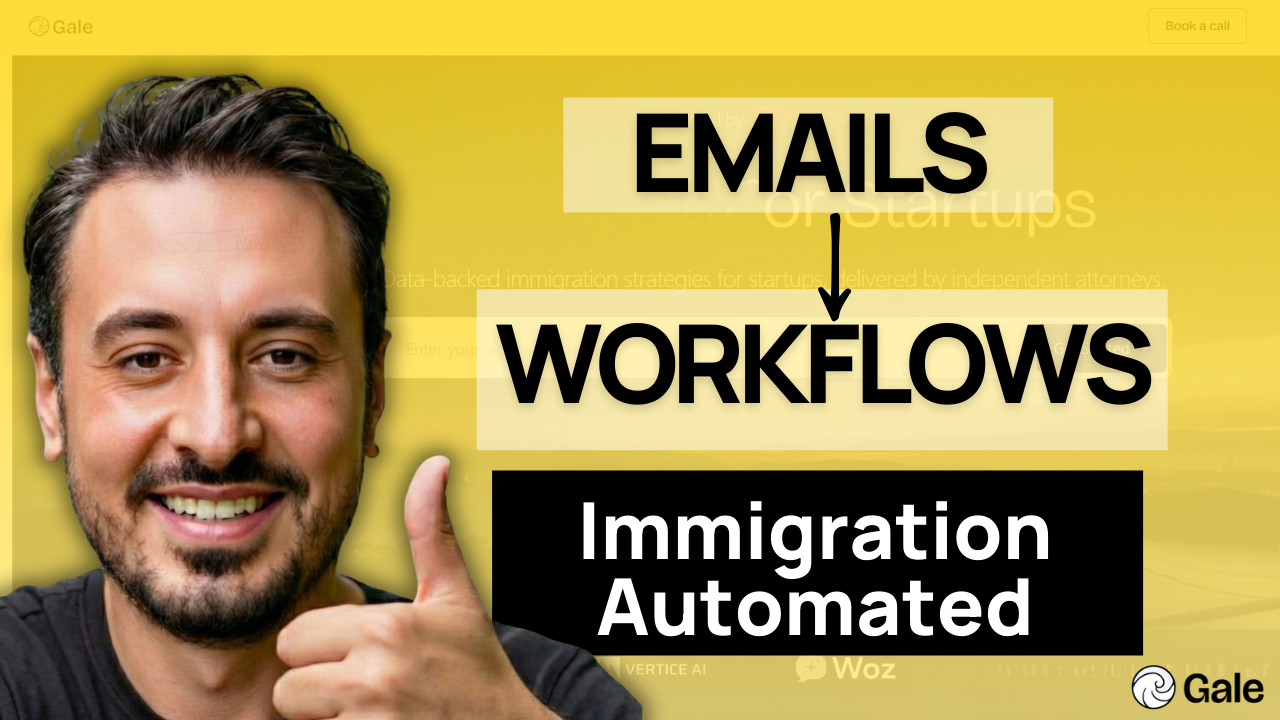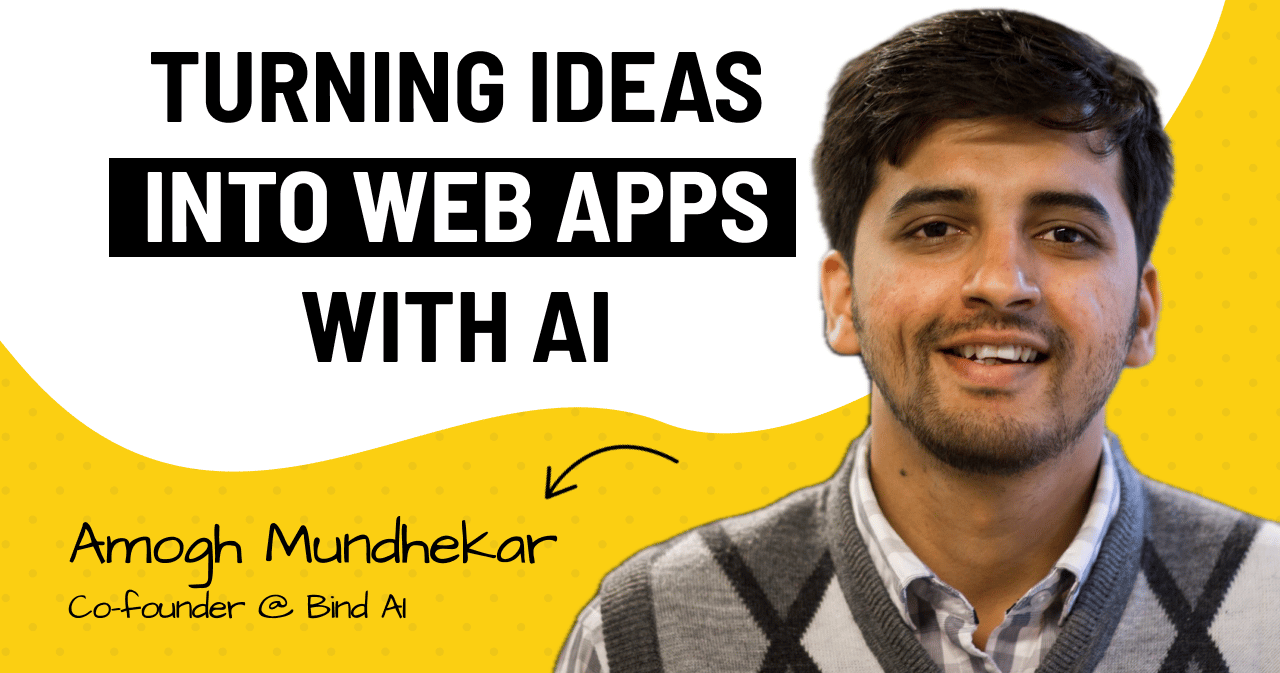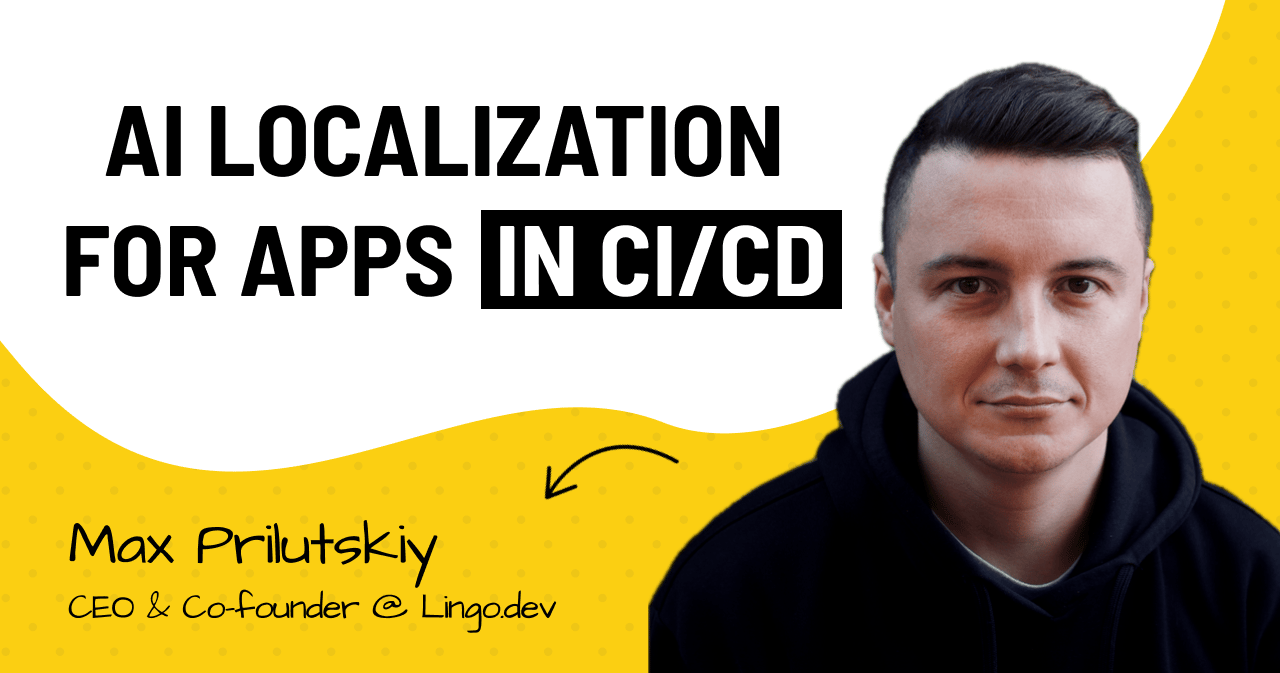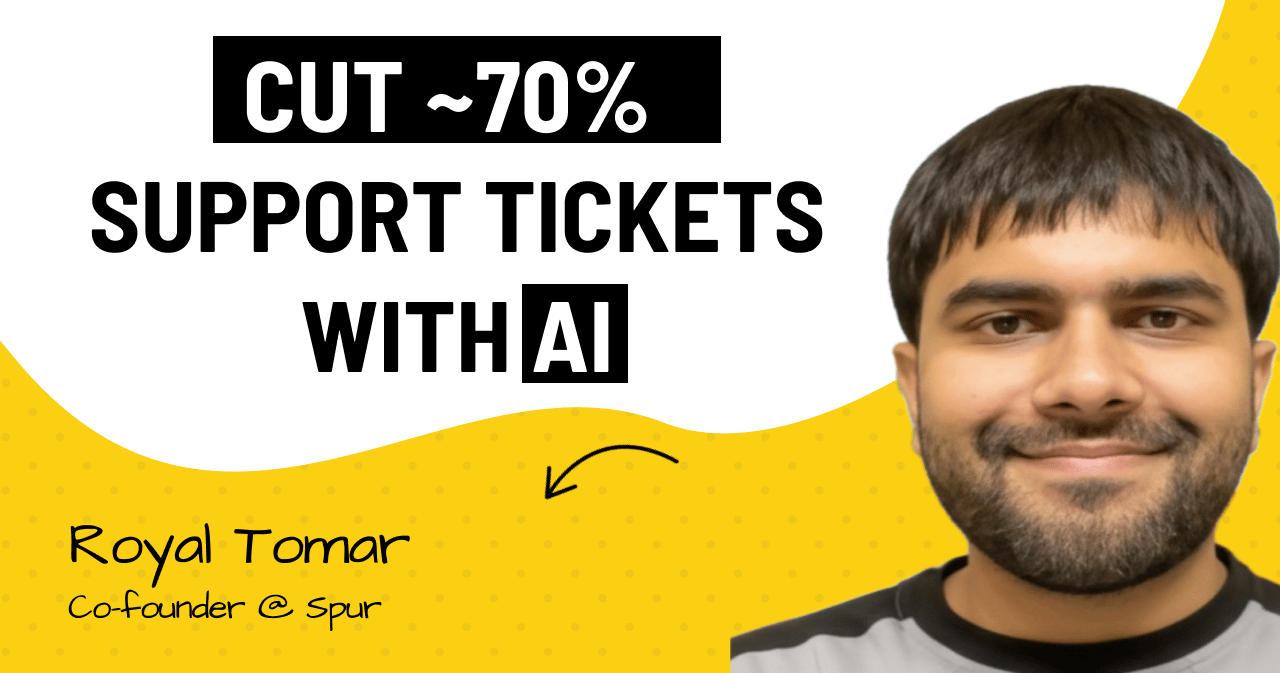Company:
SeniorDev.ai
Founded:
2023
Headquarters:
Columbus, Ohio, US
Key Highlights:
- Born from the founders' own first-hand dev experiences.
- Solving time-suck bottlenecks with instant reviews and tests.
- Rapid iteration cycles driven by intense user feedback loops.
- Prioritizing clarity over flashiness in branding.
- Grassroots marketing by tapping into their dev network.
Hello! Tell us who you are and what’s your backstory.
Darrell & I (Afif) have been starting businesses for the last 10 years. After graduating with degrees in Computer Science (Darrell) and Marketing/Operations Management (Afif), we started working in corporate tech, always hopping to the next job together, an inseparable team. After finding that we worked so cohesively together, sharing new product ideas became natural, and before we knew it we were starting LLCs to fulfill those ideas. Our drive for building SeniorDev AI comes from 2 parts; part early fascination with what AI could do & part mentoring early devs into the industry. See more at our blog.
Can you give us your 1-3 sentence elevator pitch?
We’re SeniorDev AI: we integrate trained LLMs with your code repositories, enabling automatic code reviews on pull requests, immediate readme documentation, and generated unit tests.
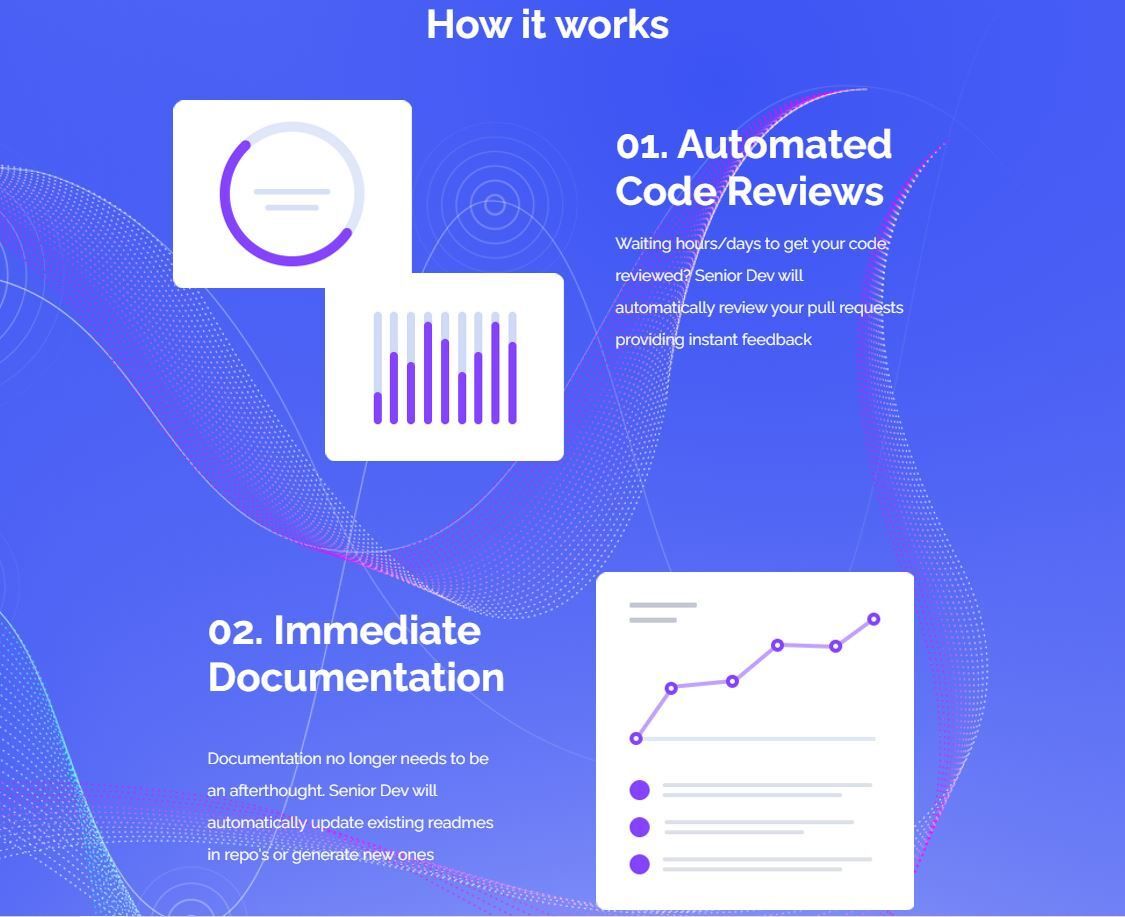
What was the moment or situation that sparked the idea for your business?
Our team plays games together. On these regular video gaming sessions we use to keep in touch over distance while talking about some of our major pain points in our daily work, Darrell mentioned that we should revisit AI and see if its latest state of development has progressed far enough for it to be useful for providing instant feedback for small development teams with diverse expertise. In a couple of weeks, we had a prototype ready. It was history from there.
How did you test and refine your initial product idea, and were there any significant pivots or changes in direction based on initial feedback or market response?
Build a product for yourselves first. It’s incredibly motivating to solve your problems first and be your first customer. We tested the app a lot ourselves - running reviews on our code, and refining itself to see how useful it could be on our code commits.
Once we found it to be relatively reliable feedback, we started sharing it as a trial period with colleagues in the industry and promoting it to have various software engineers trial it. We’ve also worked with corporate teams. Much of the pivoting or new feature adjustments the application went through are from those trial runs.
A few significant pivots were:
- Moving from just ChatGPT 4.0 code reviews → to training personalized LLMs
- A SaaS solution that we host → A product offering that allows organizations to deploy SeniorDev AI in their cloud environment allowing for the app to run without ever leaving customers’ data centers
- Moving away from a Slackbot to an app more focused on VCS integration.
What specific strategies or decisions significantly contributed to the growth and scaling of your business?
We were selected by a tech incubator, Rev1 Ventures, to help accelerate our development speed, and scale our marketing. In addition, product launches and affiliate partnerships have helped get our name out there.
(Linkedin Post, Rev1 New Client Article, Other PR)
Can you share some major challenges and how you tackled them?
Creating a product from the ground up is always a challenge. Learning to work with AI and unlock its full potential was tough at first. We tackled this through a TON of trial and error until we started to hit the sweet spot.
Figuring out how to market this product, and message it in a clear way that allowed users to understand it, despite the insane complexities of AI, was a large hurdle. Again, time has been our friend on this, and we’ve slowly refined our product description to break down its key value. It has also helped that various other companies are doing more AI-related projects, creating industry language around AI that we can hook into as people already understand those terms.
How did you really get to know your customers and market?
Everyone on the founding team is a developer. We’ve been able to connect closely with our customers - sharing their same pain points around code reviews.
Working with them, as we mentioned above, we tested from the start with our audience to understand the features they desired most and their largest pain points.
What's the story behind your brand and marketing approach?
Our brand is still in progress, and we’re super excited to be included alongside all these other AI products as they are messaged out into the world. Currently, due to the complexity of AI and this product, our brand focuses on clarity. We don’t try to sparkle or dance, we simply state what we can do and what the user can expect in language that we as software engineers would appreciate and understand.
In line with simplicity, our marketing strategy mostly consists of regular posts on product updates on social media, PR partnerships, and using our large network of software engineers to spread the word. We also rely on SEO optimization and blogging, but paid advertising is on the roadmap.
How did you attract and secure your first customers?
Through our existing network of software engineers. It was huge that we’re coming from a similar background as our customers, so that was most effective in aligning what our product provides with those customers’ needs.
What's been your approach to product development?
Once we found it to be relatively reliable feedback, we started sharing it as a trial period with colleagues in the industry and promoting it to have various software engineers trial it. We’ve also worked with corporate teams, and much of the pivoting or new feature adjustments the application went through are from those trial runs.
Once we collected the feedback, we created feature sets from those requests and incorporated them into our Agile workflow, releasing those features in staggered sets to our existing clients, getting more feedback, and again incorporating that feedback into the agile workflow to continually refine it. Of course, as a team, we vetted those requests. If we believe the requests would take the product in a direction that couldn’t scale or co-exist with other feature sets, we would work with the client to determine alternatives.
How have you navigated the financial aspects of your business?
As we’re still very much in the startup phase, and attempting to collect funding, this product has been self-funded. Our main strategy has been closely vetting every expense to determine if it is absolutely necessary for the essential features of this product, and minimizing those expenses as much as possible through various optimizations. A critical part of this has been road-mapping our self-funding budget, to confirm how long our development leash will last us.
What future do you envision for your company?
We envision the product integrating into larger corporations and lone developers alike on a wider scale once we hit that hockey stick threshold.
Is your team growing? Tell us about the roles you’re looking to fill.
We do plan to eventually grow. For now, we are keeping the team tight to 5 members as that number has met our needs for continued relationship management, product development, system maintenance, marketing, and sales.
Where can curious minds find more information about your business?
- Please visit our site here.
- Recently published in Forbes.
Do you have any reflections or insights you’d like to share with our community?
Nothing succeeds in a silo. We have been able to form a tight-knit team of talent because we’ve connected with so many talented people. We believe keeping comms open and welcoming, and being able to collaborate with different teams, especially in the open-source community, makes the future potential limitless.
Interview with
Afif Mohd-Amir
Co-Founder @ Seniordev.ai
